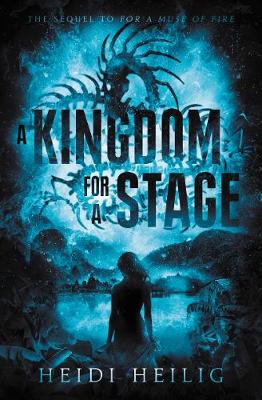Reviewed by Kat @ Novels & Waffles on
Reading updates
- Started reading
- 9 March, 2020: Finished reading
- 9 March, 2020: Reviewed

Caught in a war between the rebels and the invading colonizers, Jetta must make an impossible choice―save her people or protect her sanity.
The second book in Heidi Heilig’s acclaimed Shadow Players trilogy blends traditional storytelling with ephemera to weave an enthralling fantasy that fans of Leigh Bardugo and Sabaa Tahir will sink into.
Jetta is a wanted criminal. The army wants her for treason against the crown, for the sabotage of Hell’s Court temple, and for the murder of General Legarde. They also want her for the power in her blood―the magic that captures wandering spirits to give life to puppets, to rocks, to paper . . . to weapons. They’re willing to trade the elixir that treats Jetta’s madness for the use of her blood. The rebels want her, too, to help them reclaim their country. Jetta may be the one who can tip the scales in this war.
But Jetta fears using her power will make her too much like Le Trépas, the terrifying and tyrannical necromancer who once held all Chakrana under his thumb―and who is Jetta’s biological father. She’s already raised her brother from the dead, after all. And scared off Leo, the only person who saw her as she truly is. With Le Trépas at large and a clash between the army and the rebels becoming inevitable, Jetta will have to decide if saving her country is worth sacrificing her soul.
Acclaimed author Heidi Heilig creates a rich world inspired by Southeast Asian cultures and French colonialism. Told from Jetta’s first-person point-of-view, as well as with chapters written as play scripts and ephemera such as songs, maps, and letters, A Kingdom for a Stage is a vivid, fast-paced journey that weaves magic, simmering romance, and the deep bonds of family with the high stakes of epic adventure. It will thrill fans of Stephanie Garber and Renée Ahdieh.
Content warnings: Mental illness (bipolar), blood use in magic, gun violence, war, colonialism, racism, descriptions of dead bodies, mention of reproductive coercion, mentions of torture, mention of suicide